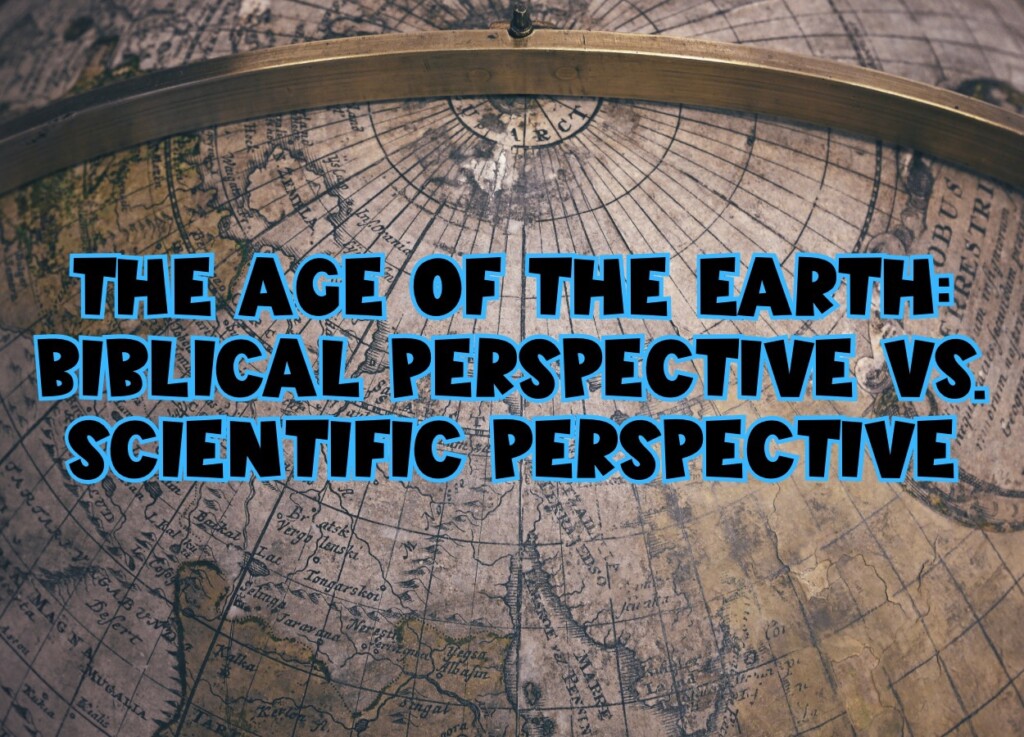What Does the Bible Say?
The Bible does not explicitly state the age of the Earth. However, some people interpret the genealogies in the Old Testament to estimate the Earth’s age. According to this interpretation, the Earth would be around 6,000 to 10,000 years old. In the book of Genesis, it is written, “In the beginning, God created the heavens and the earth” (Genesis 1:1, NKJV). The six-day creation account in Genesis has been the subject of much debate, especially regarding whether the “days” are literal 24-hour periods or symbolic of longer spans of time.

What Does Science Say?
Contrary to the young Earth perspective, scientific estimates place the age of the Earth at approximately 4.54 billion years. This is based on evidence from radiometric age-dating of meteorite samples, as well as other Earth rocks. The scientific community widely accepts this age, and it is supported by a range of geological and astronomical observations.
The Discrepancy
The significant difference in age estimates often leads to a perceived conflict between science and the Bible. Some people see these as irreconcilable views, while others look for ways to harmonize them. For example, some argue that the “days” in the Genesis account could represent long periods of time, not literal 24-hour days. Others suggest that the genealogies in the Bible may not be complete and could account for additional time not explicitly mentioned in the text.
Common Questions
Can both views be correct?
The question of whether the Biblical and scientific views can both be correct is a matter of interpretation and belief. Some people hold to a literal interpretation of the Bible and see the scientific view as incompatible with their faith. Others find ways to reconcile the two by considering alternative interpretations of the Biblical text or by viewing the scientific evidence through a different lens.
What are the implications for faith and science?
The age of the Earth is a topic that has implications for both religious belief and scientific understanding. For some, the discrepancy between the two estimates is a stumbling block to faith; for others, it’s an invitation to explore the complexities of both scripture and the natural world.
The age of the Earth, according to the Bible and science, appears to be vastly different based on the perspectives of Biblical literalism and scientific evidence. The topic continues to be a point of contention and discussion in both religious and scientific circles.
Reconciling Biblical and Scientific Views
The Gap Theory and Day-Age Theory
There are several theories that attempt to reconcile the Biblical and scientific timelines. One such theory is the Gap Theory, which suggests that there may be a significant gap of time between Genesis 1:1 and Genesis 1:2. This would allow for the billions of years that scientists propose. Another theory is the Day-Age Theory, which posits that the “days” mentioned in the Genesis account are not literal 24-hour days but rather long periods of time, possibly even millions or billions of years.
The Fallibility of Science
While science has provided us with incredible insights into the natural world, it is not infallible. Scientific theories are subject to change as new data becomes available. For example, the methods used for radiometric dating have assumptions that could be questioned. These include the initial conditions of the rock samples and the constancy of decay rates over millions of years. If any of these assumptions are incorrect, the age estimate would also be incorrect.
Common Questions
Could they actually be saying the same thing?
It’s possible that both the Biblical and scientific timelines are describing the same history but from different perspectives. The Bible offers a theological account focusing on the relationship between God and His creation, while science provides a naturalistic explanation based on empirical evidence. If the days in Genesis are symbolic and represent long epochs, then the timelines could potentially be reconciled.
Why might scientists be wrong?
Science is a method of inquiry that relies on observable, empirical and measurable evidence subject to specific principles of reasoning. However, when dealing with events that occurred in the distant past, scientists must make certain assumptions that cannot be directly tested. For example, in the case of radiometric dating, scientists assume that decay rates have remained constant over time. If this assumption is incorrect, then the scientific estimates for the age of the Earth could be wrong.
The question of the Earth’s age according to the Bible and science is complex and multi-faceted. While both viewpoints offer compelling arguments, they also have their limitations. The Bible’s account is subject to various interpretations, and science, while rigorous, is not without its assumptions and potential errors. Therefore, the discussion remains open, inviting further exploration from both theological and scientific perspectives.
As an Amazon Associate we earn from qualifying purchases through some links in our articles.




